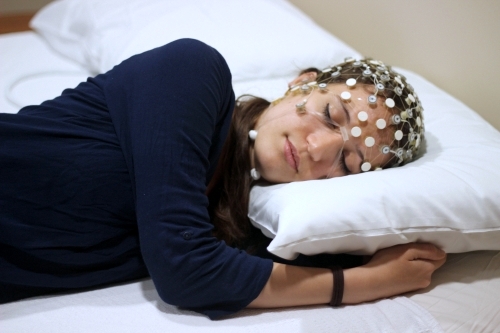Our training philosophy: Effective training in sleep and circadian science is multidisciplinary, translational, evidence-based, milestone-driven, and socially conscious.
The training program includes three components:

- Postdoctoral training: Mentored research with experienced investigators is the foundation of this program. We use a team mentoring approach, support individualized didactic work, and employ measurable outcomes to judge progress. Trainees attend a weekly T32 seminar that includes core competencies in sleep and circadian science, professional development sessions, and responsible conduct of research discussions. Trainees participate in the Department’s Career and Research Development Seminar (CARDS) series.
- Medical student research training: We offer a 10–12-week individualized research experience with a sponsoring mentor. Activities include mentored research with an emphasis on generating posters, abstracts, and papers, as well as opportunities to interact with faculty and peers. We also mentor medical student research through the School of Medicine Longitudinal Research Project.
- Predoctoral training: This program supports nationally recruited predoctoral students in accredited Pitt graduate programs (e.g., psychology, neuroscience, epidemiology, health and physical activity). Training emphasizes research in the mentor’s lab as well as near-peer mentoring and participation in seminars.
Program length
One to three years (predoctoral and postdoctoral programs); 10 weeks to three years (medical student training).
Who should apply?
Postdoctoral training: Individuals with an MD or PhD in a discipline related to sleep/circadian medicine are encouraged to apply. Examples include medicine, psychology, nursing, physiology, and epidemiology.
Medical student research training: Medical students in the early stages of training, typically transitioning from first to second year. Applications are encouraged from the University of Pittsburgh and other medical schools.
Predoctoral training: Incoming or established graduate students in Pitt graduate programs relevant to sleep and circadian science.
How many spots are available?
Four postdoctoral positions, four medical student summer positions, and two predoctoral training positions are available each year.
How do I apply?
If you are interested in the program, please complete an online contact form.
